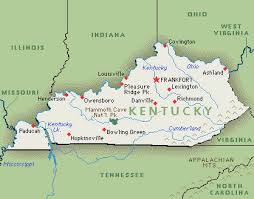 My wife's natural father is very sick. Her relationship with him sadly was distant by his choice. He has been remarried for 14 years or so. The issue is my wife does not feel comfortable asking his spouse if the father has a will. What occurs if he passes away and nothing is said about a will. This is an uncomfortable situation at a very difficult time. Before slipping into an unconscious state the father showed great regret for his choices towards his daughter. Henry, Kentucky.
My wife's natural father is very sick. Her relationship with him sadly was distant by his choice. He has been remarried for 14 years or so. The issue is my wife does not feel comfortable asking his spouse if the father has a will. What occurs if he passes away and nothing is said about a will. This is an uncomfortable situation at a very difficult time. Before slipping into an unconscious state the father showed great regret for his choices towards his daughter. Henry, Kentucky.Your wife's situation is common in cases where the parent remarries. The problem is often compounded by (a) distrust between the new spouse and the children of the prior relationship and (b) a financial disincentive on the part of the new spouse to produce a will if one exists bequeathing part of the estate to others. I think it's vital that your wife ask her father whether or not he has a last will (and, also, whether she is a beneficiary) before he passes away. Perhaps he is too ill to respond at this point.
Most states have a law in their probate code compelling persons in possession of the last will of a decedent to file it with the probate court after the death of the maker of the will. A quick check of the Kentucky probate code found no such statute, however, there is a Kentucky law stating that the court, "on being informed that a person has in his custody the will of a testator, may summon him, and, by proper process, compel him to produce it." Kentucky Stat. §394.160. When the father passes away, if there is no communication from the surviving spouse, check with the clerk's office for the probate court for the county in which the father resided at the time of his death. If a will was presented for probate, that is where it would be filed. If no will is filed, I think you need some sort of information about the existence of a will and who most likely possesses it in order to seek a court order compelling production of the will.
 I frequently receive questions regarding the effect of divorce upon a last will. Most states have a provision in their probate code invalidating bequests to former spouses under certain circumstances. Below are samples from three states.
I frequently receive questions regarding the effect of divorce upon a last will. Most states have a provision in their probate code invalidating bequests to former spouses under certain circumstances. Below are samples from three states. Reader Question: Do proceeds of an insurance policy pass under the will? Kevin.
Reader Question: Do proceeds of an insurance policy pass under the will? Kevin.